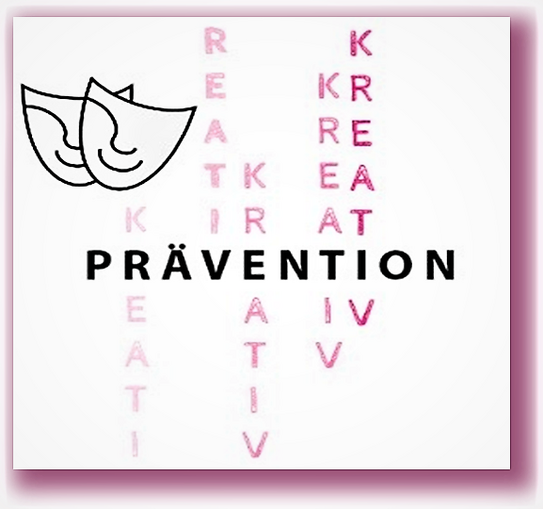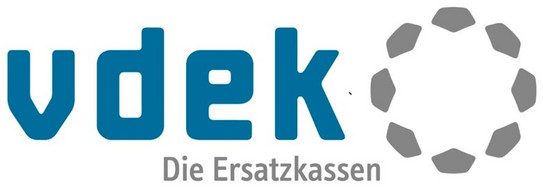Prävention Kreativ! - Complementary social-artistic and soul-oriented health-promoting group interactions for addiction and violence prevention in inpatient care
07/01/2022 - 12/31/2025
Research area Labour policy and health | Kerstin Guhlemann
In the project "Prävention Kreativ!" (Creative Prevention), innovative health-promoting offers and measures are developed that strengthen the resilience of residents in inpatient care in a comprehensive approach and thus contribute to the resident-centred prevention of violence and addiction problems.
The situation in German nursing homes has been associated with a variety of challenges not only since the Corona pandemic. Many residents of inpatient care facilities suffer from social isolation, loneliness, lack of meaningful activities, lack of exercise and lack of cognitive activation. The GKV guidelines on prevention in inpatient care facilities also refer to this. For example, the tight cycle of care tasks combined with persistent staff shortages means that caregivers have less and less time for preventive measures beyond physical care. Addiction and violence problems among residents can be closely interwoven with this situation.
Violence and addiction problems in care facilities are often manifestations of multifactorial structural problems such as a lack of time and staff, high emotional stress on the part of employees and residents, and the challenge of maintaining resilience while resources tend to decline. In addition, unsuccessful or missing communication can have a negative impact on the health of residents (Weissenberger-Leduc & Weiberg 2012, Breinbauer et al. 2019).
In order to adequately address these multi-layered problem situations, an innovative multidimensional approach to prevention and health promotion is needed. For both addiction and violence prevention, there is a lack of robust evidence on the effectiveness of such measures for residents in care facilities, and there is a lack of recommendations for appropriate prevention services. This project therefore aims to develop effective measures to prevent addiction and violence and to promote the health potential of impaired, multimorbid people in need of care in inpatient care facilities in accordance with the GKV guidelines on prevention pursuant to § 5 SGB XI. Prävention Kreativ! therefore explicitly addresses health promotion and prevention in the areas of violence and addiction in inpatient care and develops recommendations for appropriate prevention services.
The focus in the area of violence is primarily on violence by residents towards other residents and towards nursing staff. Violence against people in need of care by nursing staff is viewed primarily from the perspective of how residents can protect themselves preventively.
The results of the project, which were developed in a participatory manner, should ultimately contribute to a reduction in violence and addiction problems in other inpatient facilities by making them as transferable as possible. To this end, the training of multipliers is also a component of the project in order to sustainably secure the knowledge acquired on health promotion and prevention.
- Research Association for Gerontology e.V. / Institute for Gerontology at TU Dortmund University
- Project Factory Witten gGmbH
- University of Siegen, Institute for Psychology and Psychotherapeutic University Outpatient Clinic
- Caritas Association of the City of Gelsenkirchen, Haus St. Anna
- Diakonie in Dortmund and Lünen, Ev. center for the elderly in Lünen
- AWO Lower Rhine, Helmuth-Kuhlen House senior citizens' center
- SZB Wassenberg nursing home for the elderly
- Barbara Lenders nursing home, Haus Helene, Mönchengladbach (associated)
In accordance with the GKV guidelines on prevention and health promotion in inpatient care facilities pursuant to §5 SGB XI, the project aims to make a comprehensive and sustainable contribution to strengthening prevention and health promotion in the area of addiction and violence among people in need of care in inpatient care facilities. The focus of the measures to be developed is on the residents themselves, who are to receive targeted support through health-promoting and preventive group offerings. The simultaneous development of resilience and protective mechanisms against threats to oneself and others is intended to reduce and prevent problems with violence and addiction in the facilities. The findings of the project are also intended to further develop the structures in the participating facilities in a way that promotes health, for example by redesigning or optimizing processes in the sense of relationship prevention. In the long term, this should also indirectly reduce the workload of employees.
Within the framework of relationship prevention, multipliers are trained in the project. The multipliers should be able to sustainably establish the developed theater-geragogical and psychologically oriented preventive approaches and concepts within the framework of the multiplier concept developed in the project, but also make them available to interested parties. The following groups are in the focus as multipliers: managers of the partner facilities, nursing and care staff, actors from quality management and interest groups, caregivers and home advisory boards as well as external interested actors from the field of violence and addiction prevention.
Transfer materials such as guidelines and checklists or curricula for short training courses for specialists are being developed to ensure the continuity of the measures in everyday work, in which the basic principles of successfully evaluated project measures can be communicated in the long term.
Health promotion and preventive measures are implemented in the project Prävention Kreativ as interlocking forms of social-artistic/geragogical and soul-oriented group offers. For example, certain biographical topics are addressed in the psychologically oriented group sessions conducted by psychologists from the University of Siegen, which are then worked on in parallel in social-artistic/geragogical/preventive sessions by the Witten project factory. In this way, the two strands - social art and motivational interviewing - can complement each other in building resilience and reducing behaviors that are harmful to health.
Behavior change always lies in the combination of knowledge, will and skill. The interlocking effectiveness of the measures developed in the project for the prevention of addiction and violence unfolds through their respective orientation: On the one hand, the basis is laid by the social-artistic/geragogical-preventive work. On the one hand, the basis is laid by the social-artistic/geragogical-preventive work, which gives the residents back their belief and intrinsic motivation in their own abilities and promotes a willingness to change, self-knowledge and awareness of their own health. The social-artistic/geragogic-preventive work thus contributes to empowerment on the level of will, without which no change would be possible. On the other hand, knowledge about addiction and violence problems is simultaneously conveyed and promoted at the content level. This is where the soul-oriented group offers come in, which provide the residents with knowledge and motivation through the technique of motivational interviewing and enable them to do something about their health.
The measures in the partner facilities take place after a comprehensive analysis of the preconditions and resources at the personnel, individual and institutional level in two waves over a period of five months each, accompanied by scientific monitoring and formative evaluation.
Careful attention is always paid to not overtaxing the residents, either cognitively or physically. Their varying capabilities are taken into account individually and situationally, e.g. by adjusting the length of the units to the residents' capabilities.




![[Translate to English:] [Translate to English:]](/storages/zentraler_bilderpool/_processed_/a/f/csm_Kontakt_b86e8d8ecc.png)
![[Translate to English:] [Translate to English:]](/storages/sfs-sowi/_processed_/6/c/csm_Glasfront_sfs_Header_eae6d325d3.jpg)

